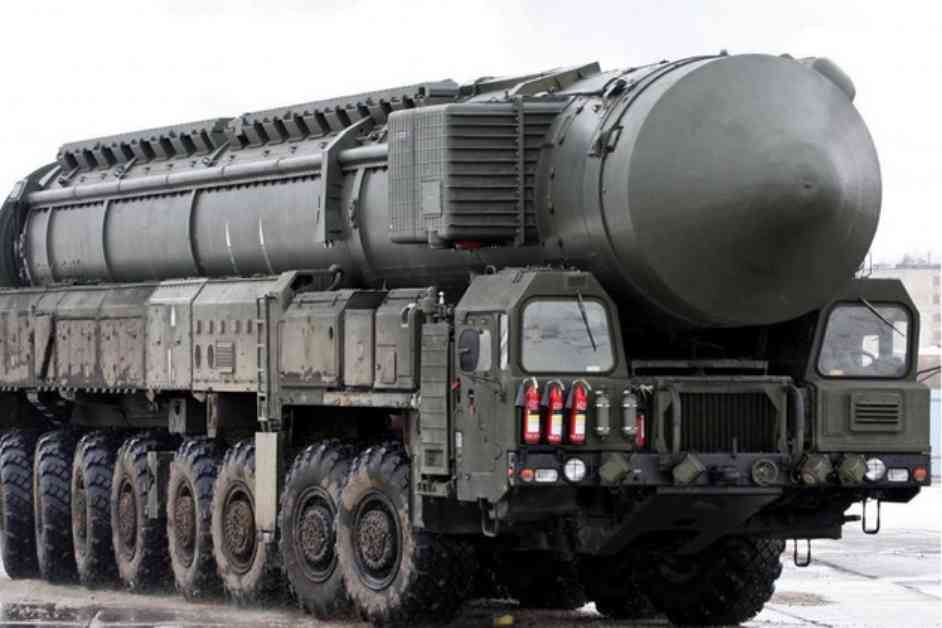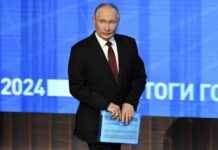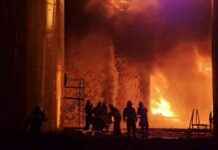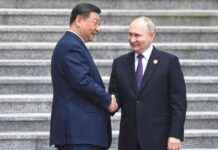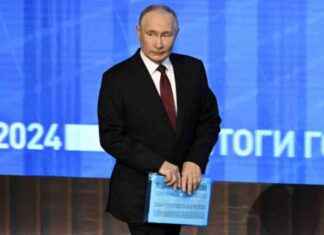The Russian military’s struggles with commissioning the RS-28 Sarmat, a nuclear-capable intercontinental ballistic missile (ICBM), have shed light on the critical role of Ukrainian expertise in their defense industry. According to a report by Business Insider, Timothy Wright, a missile expert at the International Institute for Strategic Studies, highlighted the impact of Russia’s 2014 annexation of Crimea and parts of the Donbas on their missile program. This move resulted in a significant loss of Ukrainian expertise that Russia had depended on for decades.
Ukrainian Expertise: A Crucial Component
Historically, Ukraine played a crucial role in the design and manufacturing of ICBMs, especially in the realm of liquid fuel systems. Much of the technology and personnel responsible for these systems were based in Ukraine, with close collaboration between the Ukrainian defense industry and Russia’s military complex. The Dnepropetrovsk “Yuzhnoye Design Bureau,” later known as the Pivdenne Design Bureau in Dnipro, was instrumental in developing the liquid-fueled motors for ICBMs.
The intention behind the fifth-generation Sarmat missile was to replace the outdated Soviet-era R-36 Voevoda missile, originally produced in the 1970s. However, the transition to the new Sarmat missile faced significant hurdles after the breakdown of military cooperation between Russia and Ukraine in 2014. The responsibility for the RS-28 project shifted to the Makeyev State Rocket Center, along with the maintenance of the R-36 missiles. This change in dynamics led to a series of challenges in the development and testing of the Sarmat missile.
The Impact of Ukrainian Expertise Loss
The absence of Ukrainian expertise in Russia’s missile program became glaringly evident with the struggles faced during the development of the Sarmat missile. The choice of liquid fuel for the new ICBM, a departure from the traditional solid rocket motors, posed unforeseen challenges for Russian engineers. Timothy Wright emphasized that Russia lacked the experience and knowledge required for handling liquid-fueled engines, a domain where Ukrainian experts had previously excelled.
Fabian Hoffman, a missile expert at the Oslo Nuclear Project, echoed these sentiments, highlighting the void left by the absence of Ukrainian specialists in Russia’s missile program. The retirement or passing of key personnel who had worked on previous missile projects further compounded the difficulties faced by Russian engineers. The reliance on outdated technologies and the lack of skilled professionals from Ukraine created a significant setback in the development of the Sarmat missile.
The development of the Sarmat missile was plagued by persistent delays, with the only successful test launch occurring in 2022, several years behind schedule. Despite grandiose claims by Russian officials, including President Vladimir Putin, about the capabilities of the Sarmat missile, subsequent tests revealed multiple failures. The explosion of the missile during a test launch in 2024 highlighted the ongoing challenges in Russia’s efforts to modernize its missile technology.
The setbacks experienced in the Sarmat missile program underscore the broader difficulties faced by Russia in advancing its missile technologies. International sanctions and the demands placed on the military-industrial complex, especially in the context of the conflict with Ukraine, have added further pressure on Russia’s defense capabilities. While the failures in the Sarmat program have not diminished Russia’s overall nuclear capabilities, they serve as a stark reminder of the intricate web of expertise and collaboration that underpins modern military technology.
In conclusion, the importance of Ukrainian expertise in Russia’s missile program cannot be overstated. The reliance on Ukrainian knowledge and technology, particularly in the realm of liquid fuel systems, had been a cornerstone of Russia’s defense industry for decades. The absence of this critical expertise has posed significant challenges for Russia’s efforts to develop advanced missile technologies, as evidenced by the struggles encountered in the Sarmat missile program. As geopolitical tensions persist, the lessons learned from this experience highlight the indispensable nature of international collaboration and expertise in shaping the future of military technology.
